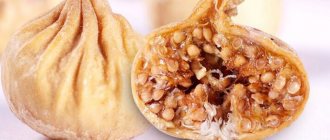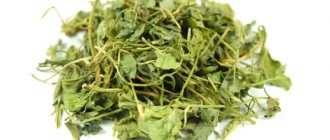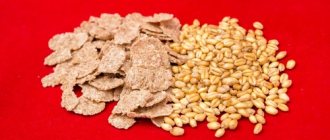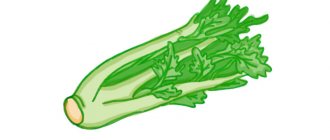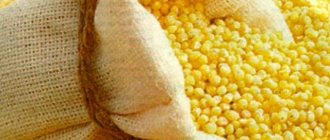Children enjoy eating all kinds of fruits that have many beneficial properties. Naturally, parents strive to introduce them into the diet as early as possible. If everything is very clear with the usual apples and pears, then with exotic fruits such as pineapple, a lot of questions arise. Therefore, we will consider when to start giving it to your baby and whether it can cause harm to the child’s body.
Benefits and possible harm
The tropical fruit contains many beneficial compounds that have a positive effect on the child’s body. Pineapple contains the following microelements:
- calcium - has an anti-inflammatory effect, promotes the formation and strengthening of teeth and bones;
- iodine - necessary for the full functioning of the endocrine and nervous systems;
- potassium - has a positive effect on the activity of the kidneys and intestines;
- magnesium - good for teeth and bones;
- manganese - takes part in the structure of cells, stimulates brain activity;
- zinc - promotes bone formation;
- copper - stimulates the activity of the immune system, is responsible for development and growth at the cellular level;
- phosphorus - is responsible for metabolic processes, stimulates brain activity, has a positive effect on the nervous system;
- iron - is involved in hematopoiesis, metabolism and hormone production.
Pineapple also contains vitamins A, K, E, PP and group B. It is considered a storehouse of ascorbic acid, which fills the child’s body with energy and strengthens the immune system.
In addition, exotic fruits contain fiber and organic acids. This improves digestion, strengthens gums, lowers blood pressure and thins the blood.
The harm to the fruit is due to the presence of acids and essential oils in its composition. There is a risk of damage to tooth enamel; a large amount of digestive juice begins to be produced in the stomach.
To maintain the integrity of tooth enamel, you need to rinse your mouth and brush your teeth after eating pineapple.
Canned fruits contain citric acid and sugar. Therefore, they cannot be eaten in large quantities. This product is not recommended for children who are overweight.
Is pineapple an exotic fruit, vegetable or herb?
Pineapple: beneficial properties
On the shelves of Pattaya you can find pineapples of different sizes and types. without this tropical fruit . And it begins to seem that pineapple is one of the national fruits of Thailand.
However, it is not. The homeland of this exotic fruit is on the other side of the globe. This is Brazil. It was from there that the “march” of pineapple around the planet began. The first Europeans to taste the juicy Brazilian fruit were the sailors of Christopher Columbus. There is even a note from the great navigator about this event in the Santa Maria's logbook.
At the end of the fifteenth century, candied pineapple came to Europe. In the sixteenth century, the fruit began to be cultivated in Asia and Africa. Later, pineapple was grown in the royal greenhouses near St. Petersburg.
In the nineteenth century, about 3 thousand pounds of 80 varieties of pineapples were exported from Ukrainian greenhouses to Europe per year.
Today, Thailand is one of the world's three main producers and suppliers of pineapples.
Botanical description of pineapple
Pineapple: fruit, vegetable or herb?
Since school years, everyone knows that pineapple is a herb . A real biologist would tell you that the genus of herbaceous plants Ananas belongs to the Bromeliad family and comes from tropical South America. The most common type we eat is the large tufted pineapple (Ananas comosus).
Representatives of the genus Pineapple are terrestrial plants, with a spiny stem and hard leaves. Numerous adventitious roots develop right in the axils of the leaves of this fruit, absorbing the moisture that accumulates there.
Pineapple leaves are succulent (moisture-accumulating), broad-linear, fleshy and spiny-toothed at the edges - reaching a length of 80 cm.
Under the thick epidermis covering the leaves there is a layer of water-storing tissue that accumulates moisture during the rainy season.
When a young pineapple has formed a rosette of leaves, it forms a peduncle dotted with bisexual flowers. After 20 days of flowering, a cone-shaped yellow-golden infructescence is formed, which consists of many ovaries fused with the bracts and the axis of the inflorescence. The vegetative leaves formed at the apex form a pappus. The genus Pineapple consists of 9 species.
Pineapple in legends and beliefs
The wide distribution of pineapple throughout the tropical and subtropical zones of the Earth is reflected in the folklore of the peoples who cultivate it.
Mention of the exotic fruit can be found in poems, songs, legends and beliefs from different countries.
In folk art, pineapple is endowed with magical powers - in Latin America, the plant was often used in religious rituals and healing.
Useful properties of pineapple
Pineapple is a juicy and delicious tropical fruit. In addition, it contains about sixty substances that give it a unique aroma. Based on the amount of these vitamins, pineapple can be safely classified as a medicinal plant.
Pineapple contains magnesium, potassium, proteins, ascorbic acid, dietary fiber, sugar, water, vitamins C, PP, B1, B12, B2.
And what about the beneficial substance bromelain, which can break down proteins and relieve inflammation... In a word, pineapple is a pharmacy in miniature.
The healing effect that appears when eating pineapple is expressed in improving the fermentation of the body, thinning the blood, preventing and treating thrombosis, thrombophlebitis, cardiovascular diseases, pain in joints and muscles.
It is believed that pineapple is an excellent remedy for weight loss. This opinion is wrong. Despite its low calorie content (50 kcal per 100 g), pineapple has a high glycemic index. This means that having satisfied your hunger with pineapple, you will want to eat again very quickly.
Pineapple: harm and contraindications
How does a pineapple grow?
Despite all the praises for the healing properties of pineapple, this exotic fruit also has a “dark side”. For example, pineapple will do more harm than good to patients with gastritis or stomach ulcers who suffer from high acidity.
Dentists recommend not eating pineapple in large quantities, as the juice of this fruit is destructive to tooth enamel.
Drinking pineapple juice is extremely contraindicated for pregnant women - fermented pineapple acquires abortifacient properties.
How to eat pineapple correctly?
How to eat pineapple correctly? How to prepare it for use?
You need to take a pineapple and separate the bottom and top from it. Then cut the fruit lengthwise into four equal parts. At the “top” of each lobe there is a hard core. You need to carefully separate it and peel the pineapple skin.
The resulting juicy pulp can be cut into slices and eaten. Bon appetit!
How to store pineapple?
If you bought a hard, unripe pineapple, keep it at room temperature until it ripens. Carefully observe the skin of the fruit - the appearance of brown spots on it indicates that the pineapple has begun to deteriorate.
Ripe fruit is stored in the refrigerator. Minimum storage temperature +7°C, maximum +10°C. To protect neighboring products from the aromatic smell of pineapple, it should be packed in a wrapper. To avoid dispute, the fruit must be turned over periodically. Pineapple can also be preserved in slices or made into jam.
Source: https://ambassador-city-jomtien.ru/exoticfruits/107-ananas.html
When can you give your child pineapple?

In the regions where these fruits grow, parents give them to their children at an early age without any fear. In southern countries, six-month-old babies can safely eat pineapples and no negative changes are observed. The child's body reacts to them normally.
In our latitudes, pineapple cannot be called familiar. Therefore, it is strongly not recommended to introduce it into a child’s menu before 3 years of age. After the first acquaintance with pineapple, you need to carefully monitor the child’s condition. If a negative reaction is observed (skin rash, vomiting, diarrhea, runny nose, cough, inflammation of the mucous membranes of the eyes), you should stop eating the exotic fruit.
It is recommended to give pineapple to a child for the first time at the age of 3-5 years.
If children have a tendency to allergies or food intolerance to certain foods, they should be fed exotic fruits for the first time only after reaching the age of 5 years.
Sometimes mothers try to introduce their babies to new foods as quickly as possible and give these fruits up to a year. What to do is strongly not recommended. Even if the body accepts the product normally, the risk of negative effects on the mucous membranes of the stomach still remains high.
What are the benefits of pineapple: is it possible to lose weight with it, why is it harmful, when should you not eat it?
Pineapple contains so much ascorbic and citric acid that it should not be eaten fresh by people suffering from gastritis or ulcers. Those who have tried the fresh fruit will remember how much its taste differs from the canned product: it is sweet and sharp, but fresh pineapple is much healthier.
In Russia, these fruits are grown in greenhouses in St. Petersburg and Solovki. Read more about the benefits and harms of the “king of fruits” in this article.
Useful properties of pineapple, calorie content
The fruit of the plant is oval in shape, formed by many ovaries, forming a pineal-shaped infructescence covered with a brown peel. Dark green leaves contain moisture reserves. The fibers of the leaves are so tough that in South American countries they are still used to make fabrics.
85-86% of the fruit pulp consists of water. For those who want to lose weight, this exotic fruit is ideal. Its nutritional value per 100 grams is only 49 calories. Protein – 0.4 g, fat – 0.2 g, carbohydrates – 10.6 g. In addition to acids and vitamins A and B, it also contains other useful substances necessary for rapid metabolism and a beneficial effect on women’s and men’s health.
What are the benefits of pineapple for the human body?
The first thing fruit lovers remember when choosing pineapple is its status as a delicacy on the holiday table, although it is healthy to eat it every day. Thanks to bromelain, a natural protein denaturator that helps digest animal products, the fruit is recommended for any feast or just a hearty dinner.
Few people know that pineapples are rich in iron. The deficiency of this microelement in the human body can be compensated with the help of a pineapple slice. One piece also contains the daily requirement of ascorbic acid.
Benefits of pineapples for men's health
Naturally, potency is most often associated with men's health, but it would be foolish to describe the beneficial properties of the “king of fruits” from this point of view. A glass of pineapple juice in the morning really increases libido and gives you energy for the whole day. But when talking about health problems in men, we need to look deeper.
It's no secret that one of the root causes of poor potency is excess weight. The fruit, consisting of coarse fibers, is a source of fiber. For weight loss, it is indispensable, like any other fruits and vegetables. Pineapple also contains a substance called bromelain, the anti-inflammatory effect of which ensures the prevention of prostate diseases.
Benefits of pineapple for women's health
A woman’s beauty is fleeting; proper and varied nutrition helps preserve it, just like youth. It has been proven that pineapple contains vitamins, enzymes and antioxidants that slow down the aging process in the body and maintain freshness and elasticity of the skin.
Bromelain helps break down proteins and remove toxins. In addition, the vitamins contained in pineapple restore women's biorhythms and normalize the menstrual cycle.
Due to its high iron content, the fruit increases hemoglobin levels, thins the blood and copes with anemia. Pregnant women are also recommended to eat several slices of fresh fruit per day. It helps cope with varicose veins.
While expecting a baby, a woman needs a sufficient amount of minerals and vitamins necessary for bones, nails and hair. Regular consumption of pineapple helps maintain the required level of potassium, phosphorus and other trace elements.
Benefits of dried and canned pineapples
Canned fruits are inferior to fresh ones in terms of the number of beneficial properties; in a tin can, some of the beneficial properties of the fruit are lost, and some of the vitamins and minerals are lost. Canned pineapples are also higher in calories.
However, canned fruit is a good alternative to candy and chocolate. It can be added to baked goods and cold desserts, as well as to salads. You can make a cocktail from pineapple syrup. Finally, canned pineapples contain less acid and have a sweeter taste, which means children will like them. However, it is much healthier to include fresh fruits in your diet.
Is it possible to lose weight with pineapple?
Nutritionists think it's possible; The composition of the fruit helps normalize digestion and speed up metabolism. But this is only an additional means of combating excess weight, and not a full-fledged replacement for regular training and proper nutrition.
There is an opinion that pineapple helps fight old fat deposits, but recent studies by American scientists have refuted this myth. As an auxiliary product for weight loss, fresh fruit is extremely useful. But the canned delicacy is undesirable on a diet, and the dried one has a fairly high calorie content. Dried fruit is a good alternative to regular sweets.
Is it possible to eat pineapples at night?
You shouldn’t hope that fruit after a good dinner will save you from excess weight. But nutritionists can't agree on a late-night snack consisting exclusively of pineapple.
Some advise avoiding this dessert due to its high fructose content. Others are confident that bromelain and fiber will not harm their figure. The truth may be somewhere in the middle, but a late-night snack overloads the digestive system, no matter what it consists of.
Harm of pineapple, contraindications
Like any other product, pineapple has general and specific contraindications; if you have at least one of the listed diseases, the fruit should be limited or excluded from the diet.
Fruit is contraindicated:
- for allergy sufferers;
- people suffering from stomach ulcers or liver diseases;
- Experts recommend that people with sensitive tooth enamel at least rinse their mouths after eating.
Conclusion
Pineapples are widely used in confectionery, cosmetology and even the treatment of calluses. They also help remove oily skin. In Asia, they traditionally finish every breakfast, lunch and dinner with this fruit, eating a couple of slices sprinkled with salt. Sophia Loren also noted the beneficial properties of the fruit, organizing pineapple fasting days several times a week.
But it is much more effective to lose weight through intense training and a balanced diet. And a slice of pineapple will become a dessert. Do you like pineapples?
Source: https://Dietonika.com/dieticheskie-produkty/frukty/chem-polezen-ananas.html
Can you be allergic to pineapple?

An allergic reaction as a result of eating this fruit is quite possible. Therefore, it is not recommended to include it in the diet of young children. Pineapple must be administered very carefully. First, the child is offered a very small piece and then the body’s reaction is observed. If negative changes do not appear, the portion is gradually increased to 2-3 cups at a time.
In what form should I give pineapple?
Your baby's menu can include both fresh and dried, canned fruits. Also, the child will be happy to drink pineapple juice. The main thing is to introduce these products correctly, taking into account a number of important points.
Fresh fruit
The maximum amount of useful substances is found in fresh fruits. They can be given simply by cutting them into small slices. It is also allowed to prepare salads with the addition of other fruits and berries that the child is already familiar with.
In addition, the exotic product goes well with many foods. For example, it is used as a filling in baked goods, added to porridges, casseroles, cottage cheese, and yoghurts. Many children enjoy eating meat baked with pineapples.
Canned
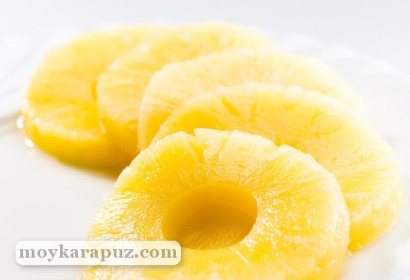
For the first acquaintance with the tropical fruit, a canned product is best suited. The risk of allergies is significantly lower. In addition, the effect on the child’s body is milder.
Although the fruit is processed, it contains many useful substances. Their concentration remains almost the same as in fresh pineapple.
When choosing a canned product, you need to pay attention to the preservation method. If the slices are preserved in sugar syrup, there will be practically no benefit from them. On the contrary, it will be high in calories and can cause harm. Therefore, it is better to buy fruit canned in its own juice. This way, maximum vitamins and minerals are preserved. Therefore, it will only bring benefits to the baby.
Dried pineapple
It contains much more phosphorus, iodine, magnesium, calcium, ascorbic acid and vitamin A than fresh fruit. Rich in fiber and therefore has a positive effect on the digestive system. True, this fruit has a lot of calories. Therefore, you should not overuse dried pineapples. They are given to children in small quantities.
Pineapple juice
A freshly squeezed drink is very beneficial for a child’s body. But it has high acidity. Therefore, it must be diluted with water 1:1. The juice can also be mixed with other drinks, or all kinds of fruit and milkshakes can be made from it.
At what age can children eat pineapple?
Despite the fact that pineapple is a storehouse of vitamin C, pediatricians strongly do not recommend giving it to children under three years of age.
Firstly, this is an atypical fruit for Russian residents; it can cause an allergic reaction. Therefore, even after the baby reaches three years of age, the fruit should be carefully introduced into the diet.
Secondly, pineapple is highly acidic, which means it can cause problems with the stomach and intestines, as well as destroy tooth enamel. Therefore, after eating the fruit, you must rinse your mouth.
Canned pineapples are less allergenic, but they contain a lot of sugar, which is also undesirable for children.
Back to list of questions
We have hundreds more answers to questions about baby food!
ARE YOU TAKE CARE OF YOUR CHILD CORRECTLY?
Take our short 10-question test and find out for sure!
SIMILAR ARTICLES
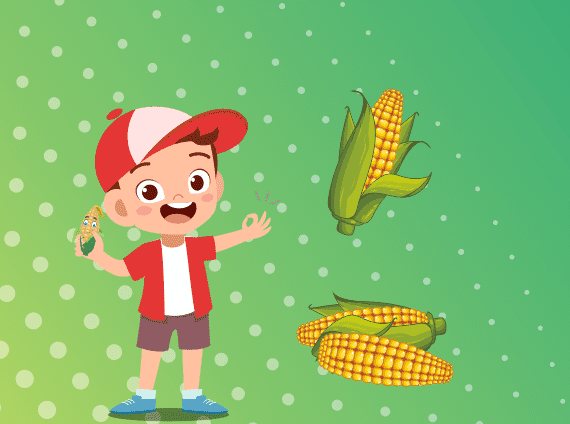
How to cook mini corn for a child?
Mini-corn in a children's diet: tasty, healthy, easy to prepare. The dietary product will become your child’s favorite dish...
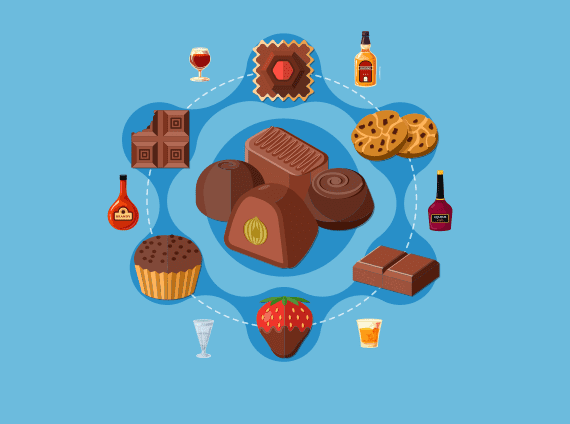
Can children have sweets with liqueur?
Dmitry Zykov, PhD in food production, gave a detailed answer to this question. Concerning…

How long to cook turkey breast for a child?
Turkey breast meat is very tender, well suited for one-year-old babies. Usually the cooking procedure is performed in…
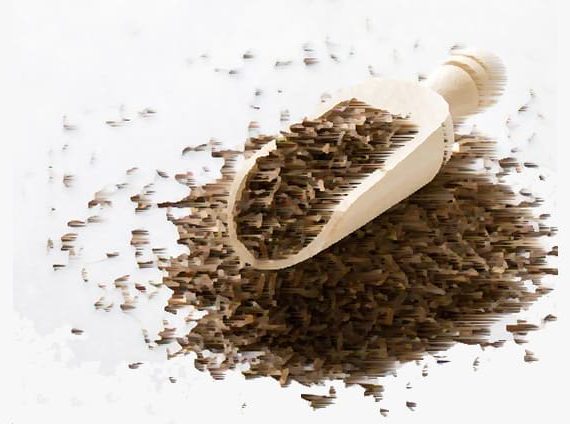
Can black cumin oil be given to children?
Black cumin oil is known for its beneficial properties. As adherents of Islam say, it cures any disease except...

How much should a child sleep between 1 and 4 years old?
Daily sleep norm for a child from 1 to 4 years old. Features of its formation. Help for parents in...

Can children drink ginger tea?
Ginger tea is an oriental remedy for preventing diseases in children. Doctors' recommendations: at what age and…

At what age can children eat pearl barley?
Pearl barley is a “slow” carbohydrate that gradually saturates the body with energy. But there are a number of restrictions for...

How to prepare milk noodles for a child?
Homemade milk noodles for a child are a hearty, tasty and healthy lunch in a few minutes. Minimum…
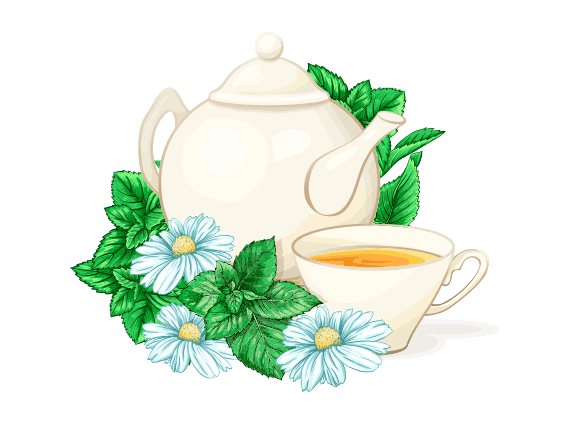
How often can children drink chamomile tea?
When treating children, parents prefer folk remedies. In some cases, this is also recommended by pediatricians,…

At what age can children eat pineapple?
Pineapple is a tropical fruit filled with beneficial vitamins and microelements. Let's figure out why you shouldn't offer this...
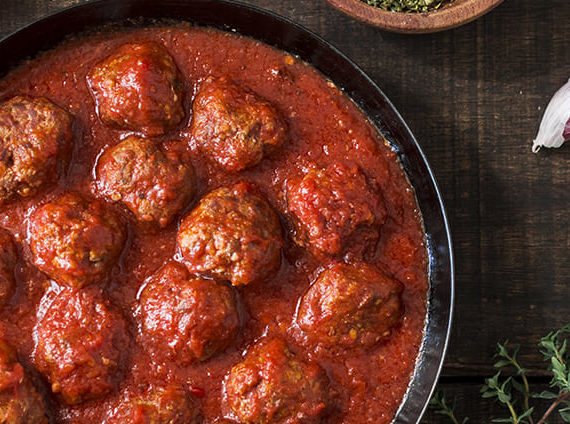
Meatballs for a 1 year old child recipes
The diet of a baby who is one year old is constantly increasing. During this period, you can already pamper him...

How to cook millet with milk for a child?
To cook millet cereal according to the rules and feed your child a healthy breakfast, experienced chefs give a number of…
How to choose fresh pineapple for a child
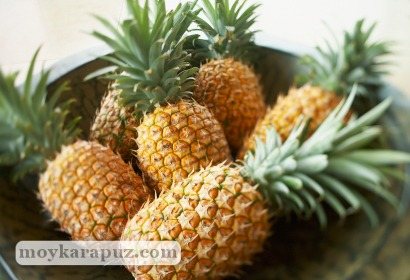
To buy a good fruit, you need to adhere to the following recommendations:
- Preference is given to large fruits. After cleaning, much more pulp will remain.
- You should choose shiny, hard, bright fruits. Dull, yellow-green pineapples are not yet ripe. When ripe, the color is yellow or orange.
- Pay attention to the top. The leaves should be fresh and green. In ripe fruits, the top comes off easily.
- Look at the so-called eyes located on the surface of the peel. If they are flat, the pineapple is ripe. The eyes should not be sharp or sunken.
- Smell the fruit. The ripe one has a pronounced, sweet aroma. An overripe one gives off a sour, fermented smell.
- You should not buy a product with soft areas and dark spots. They signal the beginning of the rotting process. When you tap it, you should hear a hard sound.
Pineapples are good for children, but they can be introduced into the diet no earlier than 3 years. Do not offer a lot of tropical product at once. A small piece will be enough. Only after making sure that the body has accepted the new product normally, the portion is increased. After this, you can begin to prepare various dishes based on the fruit, which, without any doubt, will delight the children.
Views:
1845.
